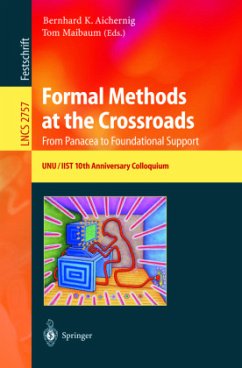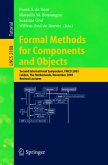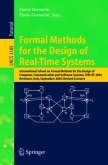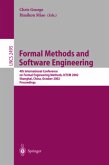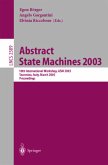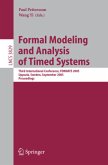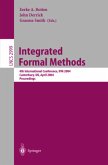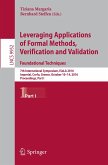This volume records the 10th Anniversary Colloquium of UNU/IIST, the Int- nationalInstituteforSoftwareTechnologyoftheUnitedNationsUniversity,held in Lisbon, Portugal, March 18 21, 2002. Armando Haeberer, then Chairman of the board of UNU/IIST, conceived the idea of an international meeting in ce- brationoftheinstitute s10thanniversary. HewasworkinginLisbonatthistime andheproposedtoholdthemeetingthere,notleastbecausethePortugueseg- ernment had been one of the major sponsors of the institute, right from the very beginning. The aim of the meeting, organized by the Board of UNU/IIST, was twofold. First, the institute s research work should be re-assessed and diss- inated. Second, the future role of UNU/IIST s research area, formal methods, should be discussed. Role of Formal Methods. Over at least three decades of development, the c- ception of what role formal methods should play in software engineering seems to have changed dramatically, in?uenced by both advocates and detractors. - ginning with a fundamentalist view that contested the genuineness of any n- formal practice, dismissing it as an inappropriate contribution to the as yet ill-de?ned corpus of so-called software engineering, the conception of what this role should be has apparently evolved to a less naive engineering viewpoint. - day, as these theoretical methods acquire a new maturity and breadth of use, many of their advocates appear to be questioning their direct application by software practitioners, often considering it to be nonmandatory, and sometimes even nonadvisable. It appears that, together with the said maturation of the theoretical results and constructions, the perspective of their role within a far more complex picture of the software development activity has also matured.

